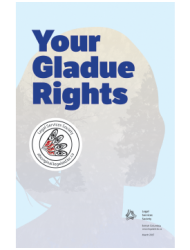(This is criminal, not civil, but enjoy anyway)
***********************************************************************
The full text for UN Global Migration Compact is RIGHT HERE.
Please sign this: PETITION E-1906 CLICK HERE
***********************************************************************
Need some extra cash? Don’t feel like working hard? Well, here at CanuckLaw, we have the solution for you.
Simply make some vague claim about: (a) being offended; (b) having hurt feelings; (c) loss of self confidence, and you will be well on your way to making your next year’s salary virtually overnight.
Need that new sports car? Or have a girlfriend with really expensive taste? Now you don’t have to feel like a cheapskate. Just file a human rights complaint, and that cash is as good as yours. Just appear before the tribunal and cry up a storm.
In court, you will be forced to ”prove damages” and likely ”hire a lawyer”. Not the case here. Just say you are offended, and the Province will pick up your tab. The slimy accused will still have to pay his bill though.
And if you want to come to Canada, but don’t qualify, then just claim to be oppressed and fearful of persecution. And since it’s all in your head, no proof necessary.
All joking aside, the Provincial Human Rights Tribunals are in fact a very lucrative way to cash in. We will explain here.
One interesting case, is Sanford v. Koop, 2005 HRTO 53 (CanLII) at paras. 34-38. CLICK HERE for a link to it. It sets out a disturbingly vague, yet extensive list which people can get extra money under. Although this is Ontario, other provinces have very similar guidelines. From paragraph 35:
[35] The Commission provided a number of cases which set out the criteria to be used in assessing the appropriate quantum of general damages. These factors include:
• Humiliation experienced by the complainant
• Hurt feelings experienced by the complainant
• A complainant’s loss of self-respect
• A complainant’s loss of dignity
• A complainant’s loss of self-esteem
• A complainant’s loss of confidence
• The experience of victimization
• Vulnerability of the complainant
• The seriousness, frequency and duration of the offensive treatmentSee: Baylis-Flannery v. DeWilde (No.2) (2003), 48 C.H.R.R. D/197 (total general damages of $35,000); Arias v. Desai, (No.2) (2003) 45 C.H.H.R. D/308 (HRTO) (total general damages of $25,000); Curling v. Torimiro (No.4) (2000), 38 C.H.R.R. D/216 (Ont. Bd. Inq.) (total general damages of $21,000); Ketola v. Value Propane Inc. (No. 2), (2002), 44 C.H.H.R.R. D/37 (Ont. Bd. Inq.) (total award of $20,000 for general damages and mental anguish); deSouza v. Gauthier (2002), 43 C.H.R.R. D/128 (Ont. Bd. Inq.) (total award of $25,000 for general damages and mental anguish)
[36] The Tribunal accepts the submissions of the Commission. Considering the evidence in this matter, and the similarity of the facts in this case with the facts in the cases cited by the Commission, the Tribunal awards $25,000 in general damages.
Damages for Mental Anguish for the Reckless and Wilful Infringement of the Complainant’s Rights[37] Pursuant to Section 41(1)(b) of the Code the Tribunal may award damages of up to $10,000 for mental anguish, injury to dignity, feelings and pride, where such infringement has been engaged in wilfully or recklessly.
[38] The Commission identified the factors used to assess mental anguish damages pursuant to Section 41(1)(b):
Yes, you are reading that correctly: having hurt feelings can get you lots of money, according to the Ontario Human Rights Tribunal. In fact, they even give a price range.
Prospective Canadians: now, if waiting years, spending money, and doing paperwork are not your thing, don’t worry. Just hop a place to the U.S. with a tourist visa,seen here, walk across the Canadian border, and get yourself detained. Free housing, food and medical care while you wait for your claim.
Immigration and Refugee Boards (IRB) and Human Rights Tribunals (HRT) are clogged with bogus cases. In fact, a quick search reveals thousands, and those are just the ones that are published. Here are some cases pulled at random.
(1) CLICK HERE for an attempt to silence speech critical of Islam.
(2) CLICK HERE for getting a job in a restaurant, then refusing to do it later based on religious grounds.
(3) CLICK HERE for a funny one, taking action against each other for discrimination.
(4) CLICK HERE for a member of the Islamic Salvation Front wanting refugee status.
(5) CLICK HERE for a claim that asking a prospective tenant for a 12 month lease is discrimination.
(6) CLICK HERE for a member of Hamas (a terrorist group), wanting to be declared a refugee.
(7) CLICK HERE for an unsubstantiated claim of fear of safety.
(8) CLICK HERE for a member of the Students Islamic Movement of India, with at least 6 arrests, wanting asylum based on persecution.
(9) CLICK HERE for a woman seeking asylum due to an interfaith marriage gone wrong (Islam and Hindu)
(10) CLICK HERE for a blind man being denied to bring his guide dog due to cab driver’s religion.
(11) CLICK HERE for a judicial review (and a well cited case) of an asylum decision.
(12) CLICK HERE for taking Rebel Media to he cleaners for offering commentary deemed offensive.
(13) CLICK HERE for a claim about saying mean words to someone.
http://canlii.org is a free site, available to anyone. You can do actual legal research from here, and research decisions from all over the country. Thing is, no lawyer is necessary.

